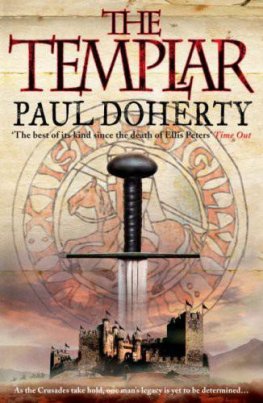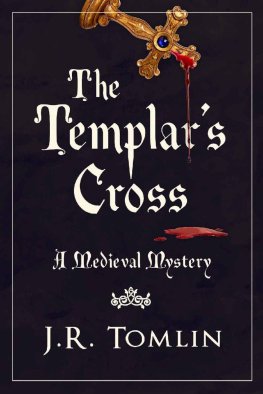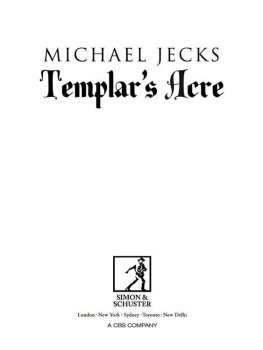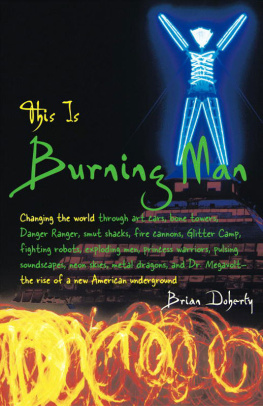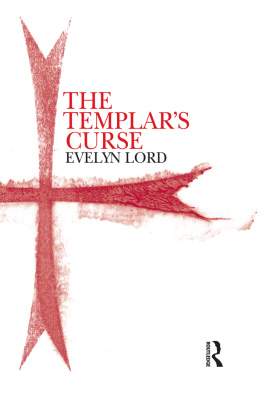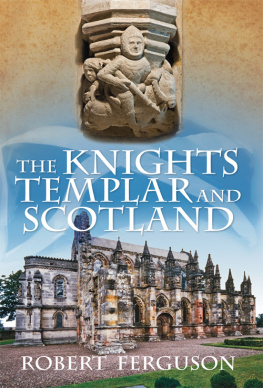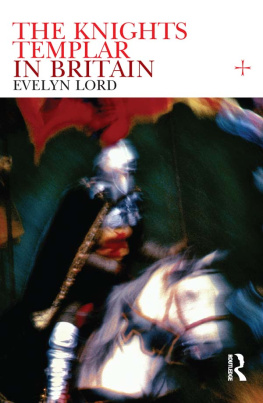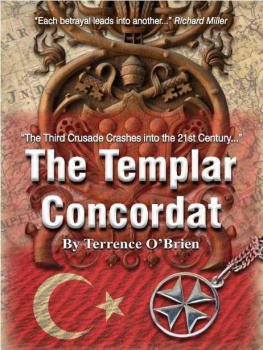P. Doherty - The Templar
Here you can read online P. Doherty - The Templar full text of the book (entire story) in english for free. Download pdf and epub, get meaning, cover and reviews about this ebook. year: 2010, publisher: Minotaur Books, genre: Adventure. Description of the work, (preface) as well as reviews are available. Best literature library LitArk.com created for fans of good reading and offers a wide selection of genres:
Romance novel
Science fiction
Adventure
Detective
Science
History
Home and family
Prose
Art
Politics
Computer
Non-fiction
Religion
Business
Children
Humor
Choose a favorite category and find really read worthwhile books. Enjoy immersion in the world of imagination, feel the emotions of the characters or learn something new for yourself, make an fascinating discovery.
The Templar: summary, description and annotation
We offer to read an annotation, description, summary or preface (depends on what the author of the book "The Templar" wrote himself). If you haven't found the necessary information about the book — write in the comments, we will try to find it.
The Templar — read online for free the complete book (whole text) full work
Below is the text of the book, divided by pages. System saving the place of the last page read, allows you to conveniently read the book "The Templar" online for free, without having to search again every time where you left off. Put a bookmark, and you can go to the page where you finished reading at any time.
Font size:
Interval:
Bookmark:
P. C. Doherty
The Templar
Prologue
Melrose Abbey, Scotland:
The Feast of St James, 25 July 1314
Regis Regum rectissimi prope est dies domini.
(The day of the Lord, of the most righteous King, is close at hand.)
The Dies Irae of St Columba
The monk lifted his cowled head and peered through the lancet window overlooking the wild heathland of Melrose. Harvest time was close, but his task was only just beginning here in the stair tower of this ancient fortified manor house. He stared round the chamber at the neatly stacked ledgers, indentures, chronicles, letters and memoranda: these had all been collected from the libraries of the Order of the Temple and brought here in the summer of Our Lord 1314.
Everything we could steal or buy, the old woman murmured as she rested on her cane, staring through the small oriel window. She didnt even bother to turn round.
Consummatum est it is finished. Brother Anselm, youve heard the news?
The young Cistercian monk coughed and nodded. He realised why he was here. He had been sworn to secrecy on the great leather-bound, gold-embossed Book of the Gospels chained to its lectern in the centre of the room.
Nineteenth March past, the old woman whispered. Jacques de Molay, Grand Master of the Temple, and Geoffrey de Charny, Preceptor of Normandy, burnt at night fastened to a stake on the le-de-France. Innocent they were She hobbled over to Brother Anselm and smiled down at him.
Father Abbot, she leaned over and girlishly stroked the monks smooth cheek, has released you from all duties. She waved round. To form this into one seamless cloak. A chronicle of the Order of the Temple from its origins to the end. She grasped Anselms wrist; the grip was surprisingly strong, despite her apparent frailty. Her light grey eyes held his.
You are my kinsman Benedict; you have the sacred blood of the de Payens, the founders of that order.
Domina, how shall I write it?
As a chronicle, the old woman replied. She turned and walked over to the neatly stacked manuscripts. As if you were there, Brother. Be like the prophet Ezekiel in the Valley of the Dead: breathe life, blood and flesh into these dry bones.
Part 1
The Parish Church of St Nectaire in the Auvergne.
The Eve of the Feast of St Ignatius of Antioch,
16 October 1096
Dies irae et vindicatae tenebrarum et nebulae.
(A day of anger and of vengeance, of darkness and thick clouds.)
The Dies Irae of St Columba
Duelling eagles had been seen fighting above the black curtain of trees, whilst in the night sky javelin threatened javelin beneath crossed swords. Blazing marriage torches had turned funereal. Winds started lightning bolts out of the clouds, which terrorised the people with their slanting flames. Comets scored the sky. Summers burned white-hot. Winter came in sheets of ice. Satan was seen everywhere. In that remote and unknown part of the great ocean called the Sea of Darkness, which teemed with monsters, devils could be seen rising from the midst of the waters, the fierce black band of the Prince of Demons, an awesome warning of what was about to happen. The time of confrontation had arrived.
The words of the Holy Father, Pope Urban II, had been released like darts the previous November. Jerusalem had to be liberated from the Turks. It was Gods will. Men, women and children began arming for war. They brought out shields, the paint peeling, their frames bare, javelins with their points forced back, swords, daggers and spears all blackened or rusting. Forges were fired in villages and hamlets, the hammering and pounding going on deep into the night. Flames leapt up against scorch-marked walls as the weapons of war were sharpened and refined ready to cull a bloody harvest. Horses were brought in, hooves and mouths checked. Sumpter ponies were trotted across icy meadows and carefully inspected. The Frankish world was about to move, to journey to Jerusalem and free the Lords Holy Places from Turkish hands. The people of the west hastened to fulfil the prophecies and portents as the skies clouded over with steel during the day and were riven at night by the clash of mythical weaponry. Masses were chanted, candles and tapers lit before the ghostly statues of a myriad of saintly protectors. Aves, Pater Nosters and Glorias were recited. Sins were shriven, penances accepted. Men, women and children took the cross, lying face down in a thousand freezing naves with the winter mist boiling along the mildewed flagstones beneath them whilst the carved face of their tortured Saviour stared down at them from the rood screen.
The great lords mortgaged their estates, pledged their revenues to the cross, begged pardon for sins and took the money offered by the good brothers of St Benedict to turn their ploughshares into swords and sickles into spears. Husbands swore fidelity towards their wives and loyalty to their kin as they drew up their last wills and testaments. Jerusalem called! Christs fief beckoned! Gods warriors were to free it from the hands of the Turks. Deus vult! God wills it! The cry echoed like a trumpet blast through the lands of the Franks. Gods will would be done! Nevertheless, the cross-bearers also dreamed of jade-green seas, of courtyards as wide as summer fields, of horses with manes the colour of the whitest wheat, of marbled porticoes, precious cloths of camlet, damask and brocade, of jewels as large as carbuncles, of warm, golden days well away from the cold, dank air of the forests or the gloomy mist-haunted woods of the west. The fire of expectation flared through the lands of the Franks; the flames of faith, hope and charity glowed alongside those of ambition, greed and lust. Gods will must be done in these last days. Men claimed the Apocalypse was imminent, the sudden rapture of the Day of Judgement, which was about to be sprung on every man like a trap. Nobody must be found wanting!
Nothing had been the same since the previous autumn, when a misty haze hung heavy over fields black and bare after the harvest had been gathered in. The grey walls of Clermont had become a shrine drawing in the caped churchmen with their glittering crosses, and the lords, their banners and gonfalons of red, gold and lily-white snapping in the breeze. On a purple dais, a curly-bearded cleric, shoulders weighed down by a pure white gold-embroidered pallium, delivered Gods message. Pope Urban II added his own summons. I speak to you who are present here, he began in a ringing voice. I announce it to those who are absent that Christ has ordained this. From the borders of Jerusalem to the city of Constantinople, terrible tidings have gone forth. A certain race has emerged from the Kingdom of the Persians, a barbarous people who have invaded the lands of the Christians of the east and depopulated them by fire, steel and ravage. Such invaders, Turks and Arabs, have advanced through the empire of Constantinople as far as the Middle Sea and as far as the straits which are called the Arm of St George. The empire of Constantinople is now mutilated. Until this present year the empire has been our defence; now it is in dire need. These Turks have driven away many Christian captives to their own country. They have torn down the churches of God or used them for their own rites. What more can I say to you? Listen now, these pillagers pollute the altars with the filth of their bodies. They circumcise Christians and pour the blood of the circumcision upon our altars or into baths and fonts. They use our churches now withdrawn from the service of God to stable their horses. Yes, these churches are served not by holy men; only the Turks may use them. Even now the Turks are torturing Christians, binding them and filling them with arrows or making them kneel, bending their heads so their swordsmen can cut through their necks with the single blow of a naked sword. What shall I say about the rape of women? To speak of that is worse than to be silent. You in France have heard the murmur of agonies from beyond the borders of Iberia! The time may well come when you will see your own wives violated and your children driven before you as slaves out of the land.
Font size:
Interval:
Bookmark:
Similar books «The Templar»
Look at similar books to The Templar. We have selected literature similar in name and meaning in the hope of providing readers with more options to find new, interesting, not yet read works.
Discussion, reviews of the book The Templar and just readers' own opinions. Leave your comments, write what you think about the work, its meaning or the main characters. Specify what exactly you liked and what you didn't like, and why you think so.

